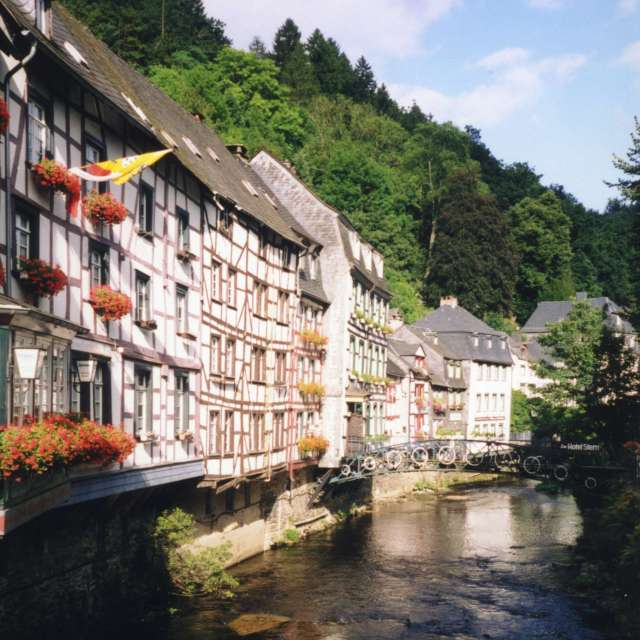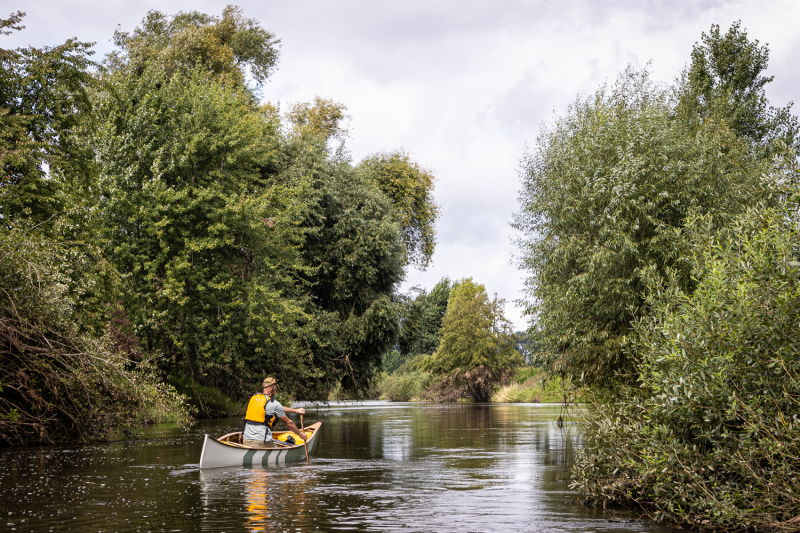Rur

The Rur, sometimes known as the Roer, is a large river that runs through Belgium, Germany, and the Netherlands. It is the Meuse's right (eastern) tributary. The river runs through Germany for around 90% of its length. It is not to be confused with the Ruhr and Röhr rivers in North Rhine-Westphalia, which are tributaries of the Rhine. The Inde and the Wurm are two major tributaries of the Rur. Monschau, Heimbach, Nideggen, Düren, Jülich, Linnich, Hückelhoven, Heinsberg (all in Germany) and Roermond are among the towns along the Rur (Netherlands).
The northern part of the Rur was heavily polluted by the tailings of many German coal mines in the 1960s and 1970s. There were no fish or other organisms to be found, and swimming in the river was dangerous. Foam flakes swamped areas of Roermond on a regular basis. The treatment of waste water in Germany and the Netherlands substantially improved once the mines were closed. Only the river's lower reaches are still contaminated. Because the water in the upper reaches of the river is so clean, trout and more than 30 different species of fish have returned. Salmon returned to the Rur in 2004 after a 125-year hiatus.
Length: 164.5 km (102.2 mi)









